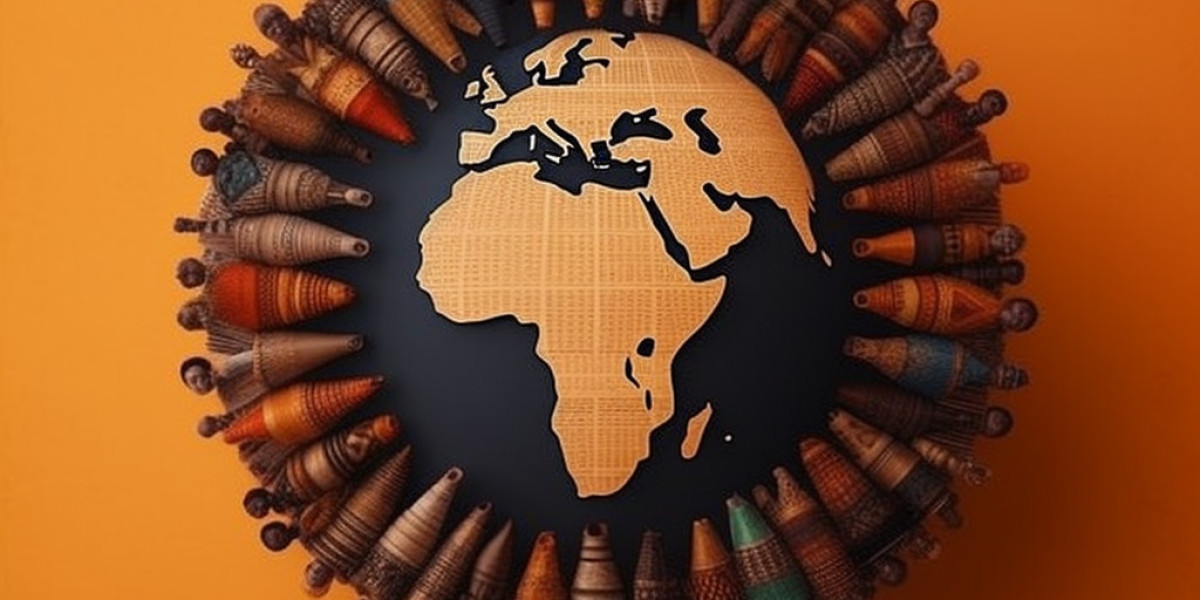Brothers and Sisters, today we embark on a journey, not of the physical realm, but of the mind, spirit, and collective consciousness of a people whose story spans millennia. We traverse tales of civilizations once grand, the scars of historical injustices, and the potential for a future so luminous it defies the imagination. This is the story of the global African struggle and why we, as custodians of our history and pioneers of our future, have a duty to inform ourselves and empower our communities.
There's a great African proverb that says, "Until the lion learns to write, every story will glorify the hunter." For too long, the narrative of Africa and its descendants has been told through a lens tinted with prejudice, misunderstanding, and often, sheer ignorance. We've been shown as the prey, not the mighty lion. Yet, within us lies the power to rewrite this story, to reclaim our narrative and ensure that our truths, our histories, and our futures are told by us, for us.
Why is this important? Because knowledge is power. Knowledge of self, knowledge of history, and an understanding of where we can go. This is not just about self-awareness. It's about nation-building, about forging a united front in the face of globalization, about harnessing our potential to build economies that serve us, and about creating a world where Afrofuturism isn't a distant dream but an achievable reality.
Malcolm X once said, "Our history was destroyed by slavery, colonialism, and segregation. We must recapture our heritage." This sentiment echoes in the ethos of Marcus Garvey when he fervently believed in the empowerment of the Black individual through self-reliance and returning to African traditions.
So, how do we move forward? How do we elevate mentally, spiritually, and economically? We start by understanding our past, recognizing our present, and strategizing for our future.
Mentally: The mind is the most potent weapon. Feed it with truth, nurture it with understanding, and challenge it with different perspectives. When we recognize the systems that have oppressed us, the chains that have bound our thinking, we can begin the process of mental liberation. No longer should we be shackled by a history written for us; we must write our history for ourselves.
Spiritually: Recognize the depth of our roots, the strength of our ancestors, and the resilience that courses through our veins. Our spirituality isn't just about religious beliefs; it's about connecting with our core, understanding our place in this vast universe, and realizing that we're part of a lineage that has survived against all odds. And in this understanding, there's a strength that can move mountains.
Economically: We must be the drivers of our economies, the entrepreneurs in our communities, the thinkers, and the innovators. Our wealth isn't just in resources; it's in our intellect, our creativity, and our resolve.
And as we envision a future where Afrofuturism reigns, where technology, art, culture, and black excellence coalesce into societies that thrive and innovate, we must equip ourselves with tools. Tools that come in the form of knowledge.
To this end, I present to you a selection of tomes, written by souls who understood our struggles, celebrated our successes, and envisioned a future where we rise:
- "The Debt: What America Owes to Blacks" by Randall Robinson
- "The Destruction of Black Civilization: Great Issues of a Race from 4500 B.C. to 2000 A.D." by Chancellor Williams
- "Up from Slavery" by Booker T. Washington
- "The Blueprint for Black Power: A Moral, Political, and Economic Imperative for the Twenty-First Century" by Amos Wilson
- "Powernomics: The National Plan to Empower Black America" by Claud Anderson
- "Sustainable Development in Africa: A Multifaceted Challenge" by Chinua Akukwe
- "Reconstructing the Dreamland: The Tulsa Riot of 1921: Race, Reparations, and Reconciliation" by Alfred Brophy
- "Post Traumatic Slave Syndrome: America's Legacy of Enduring Injury and Healing" by Dr. Joy DeGruy
- "The Warmth of Other Suns: The Epic Story of America's Great Migration" by Isabel Wilkerson
- "The Condemnation of Blackness: Race, Crime, and the Making of Modern Urban America" by Khalil Gibran Muhammad
These aren't just books; they are gateways. Gateways to understanding, enlightenment, and empowerment. Let us embark on this journey together, fortifying our unity of thought, solidifying our purpose, and embracing the promise of Afrofuturism.
Ladies and gentlemen, we are the lions. Let us write our story.
Thank you.







